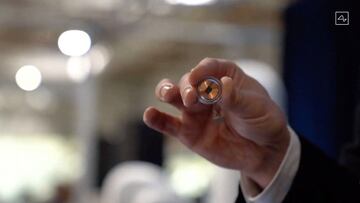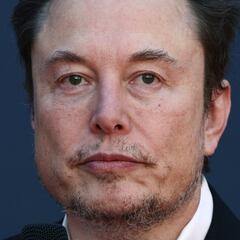Elon Musk’s startup Neuralink to begin human trials: What does the company do and why is it so controversial?
Neuralink will give an update on the first human trials of its brain-computer interface implant. However, previous trials in animals raised concerns.

Elon Musk announced in January that the biotech start-up he co-founded, Neuralink, had begun the first human trials of the company’s brain-computer interface implant. On Thursday, an update is expected on the progress so far of the product dubbed ‘Telepathy’.
The initial goal is to enable the test subject to control a smartphone and a computer through a wireless brain-computer interface. When Musk announced that human trials were under way, he stated that the initial results showed “promising neuron spike detection.” However, the previous trials on animals have not been without controversy and concerns about safety.
Elon Musk’s startup Neuralink to begin human trials: What does the company do and why is it so controversial?
The neurotechnology company was launched in 2016 by Musk along with a team of seven scientists and engineers going public in March 2017. The controversial billionaire has been predicting human trials since 2019 but the company hadn’t sought approval from the Food and Drug Administration until 2022.
The pace at which he wants the technology to come to market has been a source of friction at the company. Nearly all of the eight founding members have left the company.
A source within the company told Reuters that at one late-night meeting Musk expressed his irritation about the company’s slow regulatory progress. The source said that the billionaire wants the biotech company to operate like his electric vehicle company Tesla.
“He can’t appreciate that this is not a car. This is a person’s brain. This is not a toy,” the source said. Reportedly, executives at the company have told Musk that his expected timeline is unrealistic to which he informed them “that he would make FDA understand the need for fast approvals.”
Calls for Musk to be investigated about falsely saying no test monkeys died because of brain implants
Shortly after its founding Neuralink acquired a sizeable number of animal subjects for experiments with its brain-computer interface implant technology. Wired has reported that contrary to Musk’s claims that none of the test animals died due to the brain implants, researchers had to euthanized at least three monkeys after they began to suffer gruesome complications linked to the implants.
The federal government launched an investigation in 2022 into the company’s treatment of research animals including pigs and sheep as well as macaques. The Physicians Committee for Responsible Medicine, a nonprofit striving to abolish live animal testing, has sent letters to the US Securities and Exchange Commission (SEC) calling on the agency to investigate Musk.
The medical ethics group is claiming that the billionaire publically lied when he denied that any of the monkeys’ deaths were “a result of a Neuralink implant.” He also said that researchers had chosen test subjects that were “close to death” and that the experimentation was conducted to confirm fully formed scientific hypotheses and never “exploratory.”
Elon Musk says no primates died as a result of Neuralink’s implants. A WIRED investigation now reveals the grisly specifics of their deaths as US authorities have been asked to investigate Musk’s claims. https://t.co/JwmSSVWgnK
— WIRED Science (@WIREDScience) September 20, 2023
Related stories
The group says that Musk knew his comments were false and that they were misleading for investors in order for them to properly ascertain the safety and marketability of Neuralink’s speculative product. The company had raised by then $280 million from outside investors which would bring the situation under the jurisdiction of the SEC for potential securities fraud.
In a series of secondary market stock trades in June, Neuralink was valued at $5 billion according to Reuters, up from $2 billion just two years ago. However, during a round of equity financing that raised an additional $43 million in November, the Wall Street Journal reports that its valuation was only $3.5 billion.



Complete your personal details to comment